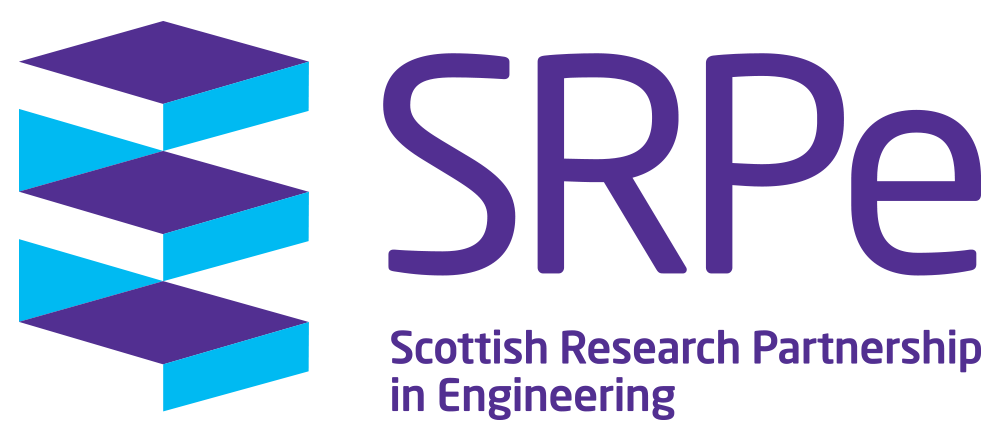A high yield micro-assembly for wafer scale, hybrid opto-electronic systems manufacturing
Academic Institution: University of Strathclyde
Academic Supervisor: Professor Michael Strain
Industry Partner: Fraunhofer UK
PhD Student: Eleni Margariti
Summary
Increasing demands on the performance and scale of opto-electronic systems for displays and on-chip photonics requires the integration of a diverse range of photonic materials at micron scales. In particular, the creation of next generation, high-resolution micro-displays necessitates the integration of numerous small semiconductor pixels (measuring between 10-30 μm2) onto non-native substrates and electronic back-planes. To accomplish the fabrication of large arrays of optoelectronic devices at the manufacturing scale, it is imperative to utilize mass transfer methodologies that exhibit high throughput, exceptional placement accuracy, and near unity yield at wafer levels, as well as prompt assessment of the transferred devices.
To surmount this challenge, we have devised an efficient, high-yield, and precise automated roll-transfer technique for optoelectronic devices at the manufacturing scale, along with an automated metrology process for swift and sub-micron resolution assessment. Our method is used for the parallel integration of thousands of devices in a single shot and subsequently the yield, the position and rotation assessment of printing devices with sub-micron accuracy by using simple microscopy setup and computer vision.
One of the biggest challenges facing the field of integrated opto-electronic technology is the use of wafer bonding for large scale integration. Electronic devices can be easily integrated using both Front End of Line (FEOL) and Back End of Line (BEOL) processes on monolithic silicon wafers. However, photonic devices require the heterogeneous integration of many materials in a single system. This should be compatible with the CMOS and back-end technology, high precision, efficient, fast and low-cost. Several techniques can be used in order to achieve large scale integration, including transfer printing processes, as it is not always possible to integrate devices through growth techniques. At present, high cost and low yield are the major obstacles to take transfer printing from single device demonstrations towards a manufacturing technology. This project will focus on the development of a direct, multilayer transfer printing technique to achieve mass printing of 3D opto-electronic devices with high accuracy. In particular, our aim is to achieve a mass printing of more than 10’s devices with an average individual positional accuracy in the few hundred nanometers range and yield more than 90%. In order to do that, we have developed an automated transfer system based on roll transfer technology, combined with an automated measurement system for electronic and optical performance, which allows for use high resolution imaging of large arrays of devices for accuracy and yield measurements. By realising this performance we will enable the deployment of this technique at scales compatible with manufacturing technologies.
Key Results/Outcomes
• Fabrication and characterization of opto-electronic devices with individual device dimensions in the few micrometre range.
• Development of an automated roll-based transfer printing method which allows the parallel integration of thousands of devices in a single shot.
• Development of an automated computational inspected method for the assessment of large arrays of printed devices with sub-micron precision.
• Demonstration of the above methods for the parallel integration of a full QVGA display pixel array which consists of more than 75,000 devices with less than 1 μm local displacement accuracy and a transfer yield of >98% (>99% excluding fabrication related defects)
Publications
• Submission of journal paper in Optical Material Express ‘’ Continuous roller transfer-printing and automated metrology of >75,000 micro-LED pixels in a single shot’’ (Currently in peer review)
• Preprint in optica open ‘’Continuous roller transfer-printing and automated metrology of >75,000 micro-LED pixels in a single shot’’, 2023. https://doi.org/10.1364/opticaopen.22142744.v1
Conferences
• Participation in the RMS Early Career Award competition (Royal Microscopical Society) 2020
• Oral presentation and conference paper in the Annual Conference of the IEEE Photonics society (IPC) 2021. The paper was shortlisted for best student paper 2021. E. Margariti, B. Guilhabert, D. Jevtics, M. D. Dawson and M. J. Strain, "Sub-micron-accuracy automated position and rotation registration method for transferred devices," 2021 IEEE Photonics Conference (IPC), Vancouver, BC, Canada, 2021, pp. 1-2, doi: 10.1109/IPC48725.2021.9592935
• Oral presentation in Doctoral School Multidisciplinary Symposium (DSMS) 2021 in agreement with two of the United Nations Sustainable Development Goals: Decent work and economic growth and Industry, innovation and infrastructure.
• Oral presentation at the SUPA (Scottish Universities Physics Alliance) Annual Showcase in the Photonics Theme Session 2021
• Poster presentation at the SUPA (Scottish Universities Physics Alliance) Annual Showcase in the Poster Session 2021.
• Oral presentation in the ‘’Fabrication and Manufacturing’’ session in the UK Nitride Consortium (UKNC) 2022, entitled ‘’Roll-transfer printing and automated inspection of large-scale micro-LED arrays’’.
• Oral presentation at the Annual Conference of the IEEE Photonics Society (IPC 2022, Vancouver) E. Margariti, B. Guilhabert, G. Quinn, D. Jevtics, M. D. Dawson and M. J. Strain, "Continuous roller transfer-printing of QVGA semiconductor micro-pixel arrays," 2022 IEEE Photonics Conference (IPC), Vancouver, BC, Canada, 2022, pp. 1-2, doi: 10.1109/IPC53466.2022.9975605
• Participation in the job fair of the Conference for Undergraduate women and non-binary physicists (CUWIP) at the University of Glasgow, April 2022.
• Poster presentation at SRPe Annual Conference 2022, Edinburgh.
Contact Information
Eleni Margariti
PhD Student, University of Strathclyde
eleni.margariti@strath.ac.uk
Professor Michael Strain
Professor in Chipscale Photonics, University of Strathclyde
michael.strain@strath.ac.uk
